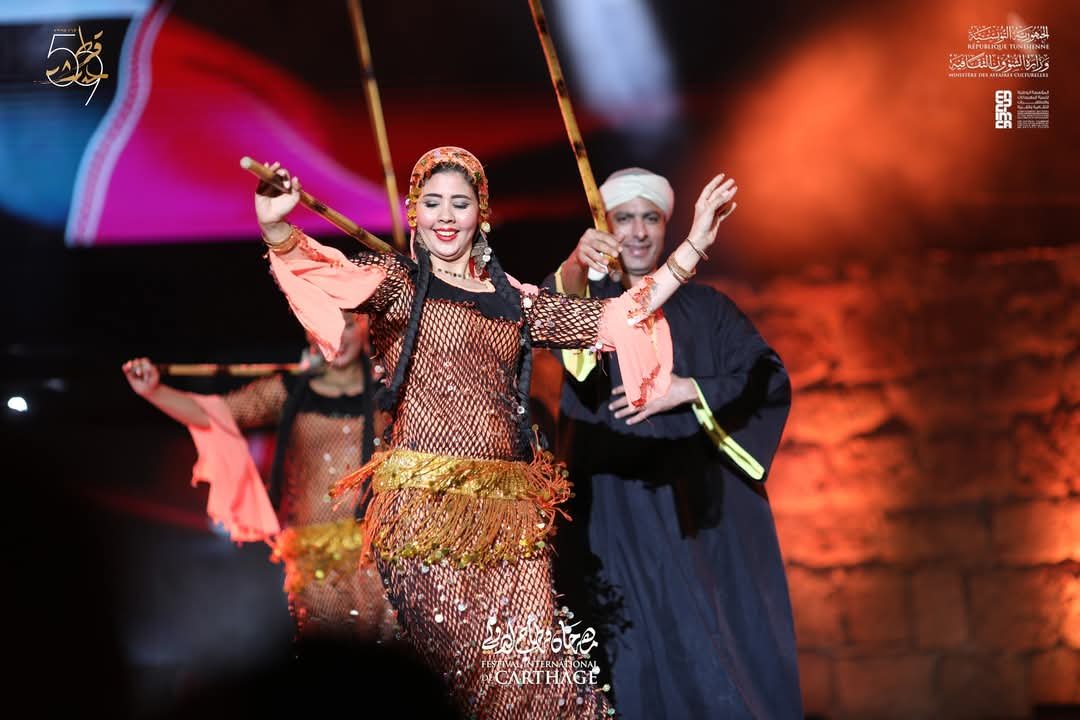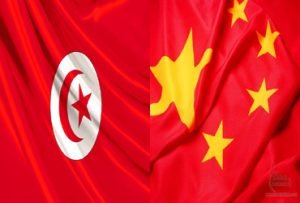This title effectively captures both the essence and tone of the original French, framing the performance at the Carthage Festival as a vibrant celebration of global artistic traditions.
On August 11, the Carthage International Festival took audiences on a global journey of music, dance, and cultural exchange with the vibrant “Folk Ballets of the World” showcase.
Troupes from ten countries lit up the stage in a kaleidoscope of colors, rhythms, and traditions, each proudly presenting a slice of their heritage through dance, live music, and traditional costumes. The evening, attended by numerous diplomats, carried a strong symbolic message of unity and dialogue between cultures.
The journey opened with Senegal’s Rythm Connection, whose multilingual frontman fused powerful vocals with drums, electric guitar, and modern beats, dedicating the song Pourquoi ça… to the Palestinian people. Serbia’s National Institute of Dance followed with the spirited “Kolo,” a traditional circle dance marked by quick steps and precise synchronization. India’s Rahjanstani Folk Dance Group brought elegance and balance with the Chari dance, performed while carrying jars on the head.
Iraq’s Dar Ellibes transported the audience to the era of One Thousand and One Nights with a fashion-meets-dance performance, while Libya’s National Folk Arts Troupe showcased music and attire reminiscent of Tunisian traditions. Burkina Faso’s Nazounski troupe electrified the stage with high-energy drumming and call-and-response chants, and Tunisia’s own Twayef de Ghbonten, listed by UNESCO as intangible heritage, earned rousing applause with their poetic chants.
Egypt’s National Folk Arts Troupe mesmerized with live music, whirling dervish Sufi dance, and a tribute to Upper Egyptian traditions. Algeria’s Théveste troupe celebrated shared Maghreb heritage, inviting the crowd to join in song and dance.
Fittingly, the night closed with Palestine’s Koufiya troupe, blending patriotic songs and youthful dance into a message of resilience and hope.
Over two and a half hours, the show delivered richness, diversity, and authenticity, reinforcing the festival’s mission to foster intercultural dialogue. The grand finale saw all participating troupes return to the stage, saluting the audience to the sound of Palestinian music.
TunisianMonitorOnline (Douha Saafi)




